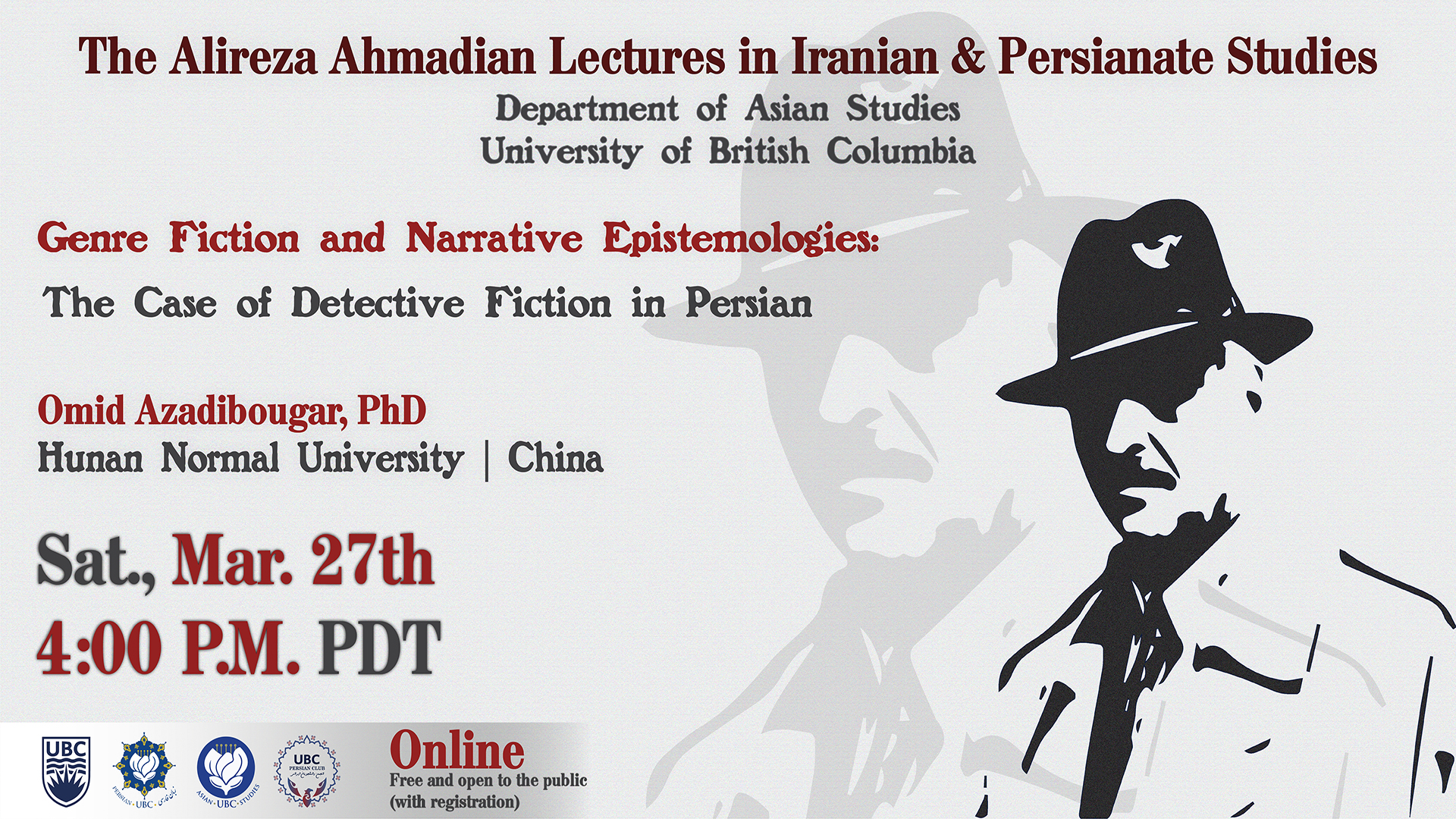

Poster design by Razman Goudarzi
ادبیات داستانیِ ژانری و معرفتشناسیهای روایی: پروندهٔ داستان کارآگاهی در زبان فارسی
سخنران: دکتر امید آزادی بوگر، دانشگاه عادی هونان، چین
داستان جنایی یا کارآگاهی اگرچه بهعنوان یک ژانر از ادبیات جهان موردتوجه بوده است، در ادبیات مدرن فارسی، چه برای نویسندگان و مترجمان و چه برای خوانندگان، ژانری محبوب نبوده است. در این نشست، سخنران به بررسی عوامل فرهنگی مؤثر بر این موضوع میپردازد. وی استدلال میکند که داستان پلیسی معرفتشناسیهای خاصی را پیشفرض میگیرد که ممکن است با برخی نظامهای فکری سازگار نباشد. همچنین به این موضوع پرداخته میشود که چگونه از معرفتشناسیهای «جایگزین» برای همسوسازی داستانهای کارآگاهی با نظامهای مختلف فکری استفاده شده است. از نظر سخنران، معرفتشناسی روایی برای تحلیل فرهنگ عامه و روایتهای شرقشناسانه مفید است و جای خالی آن در بحثهای پیرامون ادبیات جهان خالی است.
Presented in English with subtitles.
Even though crime/detective fiction has been discussed as a genre of world literature (e.g. Nilsson et al. 2017), it has not been a popular genre in modern Persian literature, whether for writers and translators or for readers. In this sense, the genre highlights one of the ruptures in the concept of world literature, signaling the existence of points of cultural resistance to literary homogenizing tendencies.
Arguing the genre and its absence in modern Persian literature, scholars have pointed at censorship as a major impediment to its rise or development (Abdoh 2014; Nanquette 2021). While the disrupting effects of censorship can partly explain the status of the genre in Persian, they do not particularly explain why it has not been received well—particularly in translation.
In this talk, Omid argues that detective narrative presupposes the cultural permeation of epistemologies that justify and sustain the genre. In other words, there are cultural factors other than censorship that defer the rise of detective fiction in Persian. Omid will discuss how “alternative” epistemologies have been used to adapt detective fiction to different systems of thought; present examples from Persian to elaborate on their epistemological assumptions; propose that narrative epistemology is largely missing in debates about world literature; and specify how the concept can be useful in discussing both popular culture and orientalist narratives.
Omid Azadibougar is Professor of Comparative Literature and Translation at Hunan Normal University. He is the author of ‘The Persian Novel: Ideology, Fiction and Form in the Periphery’ (Rodopi | Brill, 2014) and ‘World Literature and Hedayat’s Poetics of Modernity’ (Palgrave-Macmillan, 2020).
Should you have any questions, please contact the Department of Asian Studies at Asian.Studies@ubc.ca.